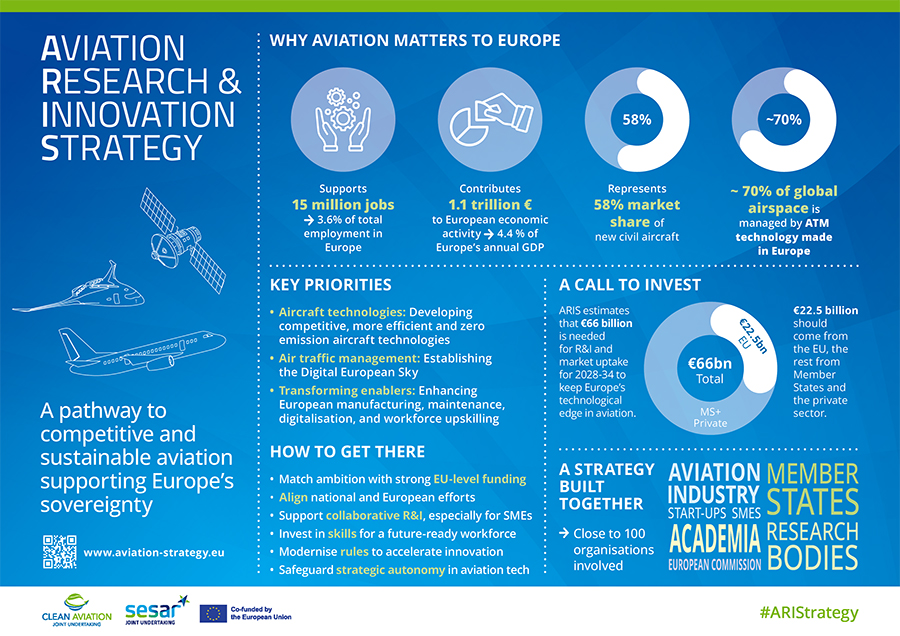
The European aviation sector is a major socio-economic driver, supporting 15 million jobs and contributing EUR 1.1 trillion to the economy. Europe accounts for 58% global market share in new civil aircraft, 47% of the order book as of 2024, and 70% of global airspace is managed by European air traffic management (ATM) technologies. This technological edge is central to Europe’s strategic autonomy and global influence. Yet, this leadership is not guaranteed. To preserve its position, the EU must adopt a bold, forward-looking R&I strategy. Developed jointly by industry, research bodies, and academia and supported by the Clean Aviation and SESAR Joint Undertakings, ARIS makes the case for strategic investment to build the world’s most competitive, safe and sustainable aviation ecosystem, supporting Europe's security and sovereignty.
To stay competitive and meet sustainability goals, ARIS identifies three areas for investment:
next-generation aircraft technologies;
efficient air traffic management; and
cutting-edge enablers such as advanced manufacturing and maintenance, digitalisation including automation, and workforce upskilling.
All parts of the innovation pipeline must be supported, from early-stage research to commercial deployment.
Read the strategy: www.aviation-strategy.eu
